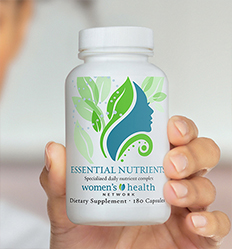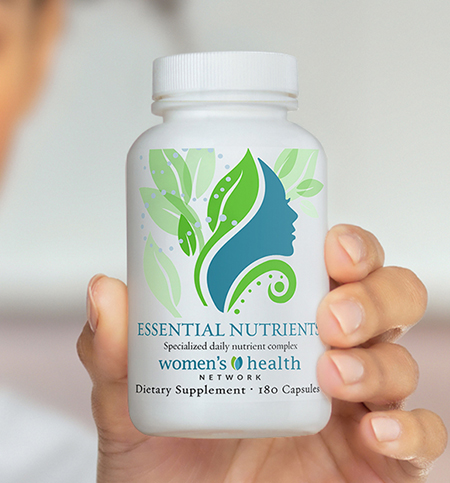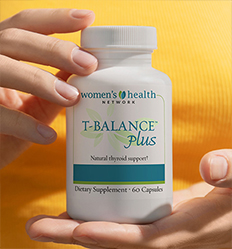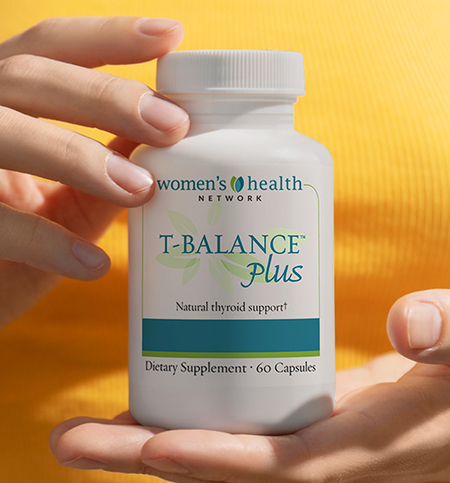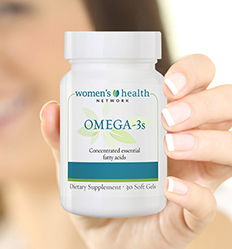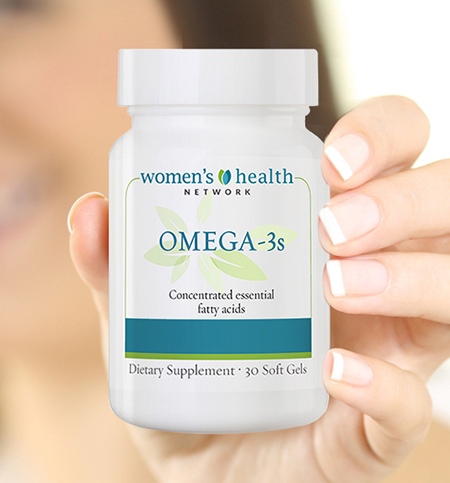A vegan diet can offer some compelling benefits, especially for those making an ethical choice to abstain from animal products. But if you’re considering going vegan in an effort to lose weight or to eat “clean,” two reasons I hear a lot in my practice, there are some drawbacks to this restrictive diet you may want to consider in making an informed decision about what is best for you.
Note: This article is not intended to define vegan diets as “good” or “bad.” There are so many reasons why women choose veganism. The goal of the information shared here is to help women understand how to construct the healthiest meals possible for themselves and their families, including supplementing where needed to fill any nutritional gaps

Health benefits of vegan diets
Are there any benefits to vegan diets? When we think about the lack of vegetables in the typical American diet, absolutely! Eating a variety of plants rich in fiber, antioxidants and phytonutrients has been shown to reduce digestive disorders and lower the risk of diabetes and cancer.
Another commonly promoted idea is that being vegan helps you live longer. Is this true? In scientific circles this claim is now largely debunked as researchers have found that vegetarian centenarians may owe their longevity to a host of lifestyle factors including their diet, but also regular and consistent movement, restorative sleep, and social interactions. A vegan diet alone is probably not enough to confer this benefit, so if living longer is your goal, pay attention to these other factors too.
Vegan diets and nutritional deficiencies: how to supplement
When you eat vegan, you are abstaining from animal products in all forms. The catch to this approach is that animals supply us with certain nutrients that are difficult or impossible to get from plant-based foods. Though most Americans eating a typical diet (including meat) are still deficient in many nutrients, a downside to a vegan diet is the prevalence of nutritional deficiencies no matter how “good” or “clean” the diet. Vegan diets are commonly lacking in B12, iron, iodine, zinc and omega-3 fatty acids.
Let’s take a look at these nutritional gaps — and how to fill them.
B12
B12 is essential for keeping your body’s blood and nerve cells healthy. It plays an important role in the formation of healthy red blood cells, cell metabolism and helps make DNA, the genetic material in all your body’s cells.
B12 is found in fish, meat, poultry, eggs and dairy foods. Plants do not contain B12.
B12 deficiency can lead to fatigue and headaches, shortness of breath, loss of appetite and palpitations as well as a host of ailments including issues with digestion, maintaining physical balance and tingling or numbness.
Where to find B12 on a vegan diet: If eating a vegan diet, B12 may be found in fortified cereals and milks, nutritional yeast or in a supplement.
Iron
Iron is an essential mineral needed for producing healthy red blood cells, specifically hemoglobin, the molecule which carries oxygen in your blood and myoglobin, a molecule that provides your muscles with oxygen.
Iron comes in two forms, heme and non-heme iron. Heme iron is found in poultry, fish and red meat and is the most readily absorbed form of iron. We absorb up to 30 percent of iron from the animal products we eat.
Non-heme iron is found in fruits, vegetables and nuts and is less readily absorbed. We only absorb 1-10% of non heme iron from plant foods. Additionally, the iron in some plant foods that are labeled with a high iron content, like spinach, have low iron bioavailability because they also contain polyphenols which inhibit iron’s absorption.
Iron deficiency can lead to digestive issues, fatigue, impaired cognitive functioning and difficulty concentrating, and reduced immune function.
Pairing foods with heme iron (meats) together with foods higher in non-heme iron (vegetables) helps our bodies more completely absorb the iron.
Where to find iron on a vegan diet: Eating foods high in Vitamin C can help our bodies absorb non-heme iron. One way to tap into this synergy is to prepare tomato spaghetti sauce in an iron pan. The Vitamin C from the tomatoes will draw iron from the pain into the sauce which can be easier for you to absorb. It may also be important to take an iron supplement.
Iodine
Iodine is a critical element needed to make essential thyroid hormones that circulate in your body. These hormones – known as T4 (thyroxine) and the more active T3 (triiodothyronine) – ensure healthy signaling between your thyroid, brain and body to regulate your energy, weight, cell metabolism and much more.
Iodine can be found most abundantly in fish and seafood, eggs, and dairy products. Seaweed and sea vegetables are a great plant-based source for iodine, but generally are not a commonly eaten food for most Americans. As a result, vegan diets (especially U.S. vegan diets) are at higher risk for iodine deficiency, studies have found.
When the thyroid is deprived of a basic building block for making its key hormones, the gland can be thrown into a state of dysfunction and underproduce its hormones. Signs of low thyroid include fatigue, weight gain, poor concentration, brittle hair and feeling cold all the time.
Where to find iodine on a vegan diet: Learn to love sea vegetables! Iodized salt is another source of iodine. If you are experiencing low thyroid symptoms, look for a high-quality thyroid supplement with enough iodine to restore and support optimal thyroid function.
Zinc
Zinc is a trace mineral which is responsible for nearly 100 enzymes to carry out important chemical reactions in our bodies. It is involved in cell growth, building proteins, healing damaged tissues, in the creation of DNA, and in supporting a healthy immune system.
Zinc is found in fish, meat and seafood. Beans, nuts and whole grains contain zinc, but it is not as bioavailable. This is because they contain phytates which bind to the zinc, lowering its absorbability. Fruits and vegetables contain very little zinc.
Zinc deficiency affects the digestive, reproductive, nervous and immune systems. First signs of deficiency include fatigue, irritability, and loss of hair and skin changes.
Where to find zinc on a vegan diet: Again, those eating a vegan diet are at risk of being deficient for this mineral; supplementation will be needed.
Omega-3 fatty acids
Omega-3 fatty acids play an important part in healthy functions of our brain and body. They are needed to produce signaling molecules your immune, pulmonary, endocrine and cardiovascular systems all need to function.
The three most important omega-3s are EHA, DHA, and ALA. EHA or DHA are found in animal sources, especially fish including mackerel, salmon, oysters, and sardines. Deficiency can lead to problems with fatigue and trouble sleeping, difficulty concentrating, irritability and trouble concentrating, difficult menstrual cycles and hair, skin and nail problems.
Where to find Omega-3s on a vegan diet: ALA is found in flax, chia, walnuts, and soybeans. Vegan supplements containing ALAs from plant-based products can be converted to EHA or DHA in the body, but not very easily or efficiently. Supplementation is generally recommended to ensure adequate amounts.
Veganism and mental health
It is especially important for women to understand the impact these nutrient deficiencies may have on mental health. For example, B12, amino acids, and Omega-3 fatty acids are essential for brain function. Deficiencies in these nutrients are associated with an increased risk of depression and anxiety.
Additionally, vegetarians and vegan women are more prone to having disordered eating. Orthorexia is a fixation on health-conscious eating behaviors in which a person makes compulsive food decisions. It involves restriction or extremes, inflexible or rigid behaviors sometimes including ritual-like activities around food preparation or eating, and leads to a lack of pleasure regarding food.
If you are experiencing depression or anxiety or eating or thinking about food is causing anxiety or fear, or your patterns of eating are negatively impacting relationships, please consult your doctor or health professional.

A note on pregnancy and fertility
Nutrition has a profound impact on fertility and pregnancy. Jennifer Green of Seven Cities Midwifery, specializing in midwifery care for homebirth families in Virginia, sees first hand the impact nutrition has on expectant mothers and women looking to conceive.
She stresses that a healthy, balanced diet that meets macro and micronutrient needs is critical for women looking to conceive. Foods that have a positive impact on fertility include foods rich in folate, B12, and omega-3 fatty acids. Folate can be found in green leafy vegetables, broccoli, kale, brussels sprouts, cabbage, asparagus, beans, brown rice and peanuts, and eggs.
Green sees a vegan diet as counter productive for fertility. “The body will prioritize functions and when undernourished will sacrifice a healthy cycle to prioritize the more basic functions necessary for survival.”
She states it’s important for women to get their diet right well before conception because, “You just don’t have time to fix an insufficient diet in pregnancy.” Nine months is too short of a window to correct for years of nutritional deficiency.
Foods that are important during pregnancy are foods with plenty of Omega 3 to nourish fetal brain development and iron to make blood to supply oxygen to the developing baby, both of which are found primarily in fish, meat, poultry and eggs.
In the past 20 years of working with women from conception to delivery, Green has seen some alarming trends including
- A rise in gestational diabetes which is linked epigenetically to the poor quality diets of our mothers and grandmothers and current lifestyle choices
- A decreased stamina in a woman’s ability to birth naturally and a decreased ability to heal after childbirth because protein and fat are the building blocks for our muscles and the body’s ability to heal.
- A decreased milk supply in more women due to nutrient deficiency
- An increase in midline defects including tongue tie which is linked to a vitamin deficiency
She encourages all women to get screening for nutrient deficiencies, especially women who have been eating vegetarian or vegan. Her practice very rarely accepts vegan clients due to the risk of adverse maternal outcomes associated with their diets.
A health coach’s thoughts on vegan diets: Take a balanced approach
Often in terms of diet and health we fall into the trap of black and white thinking. Meat is either good or bad. Vegan diets are either the best approach or the worst approach. It negates the possibility that there is any middle ground and the fact that the way food affects our bodies is complex and nuanced, and our understanding of nutrition science is continually changing and evolving.
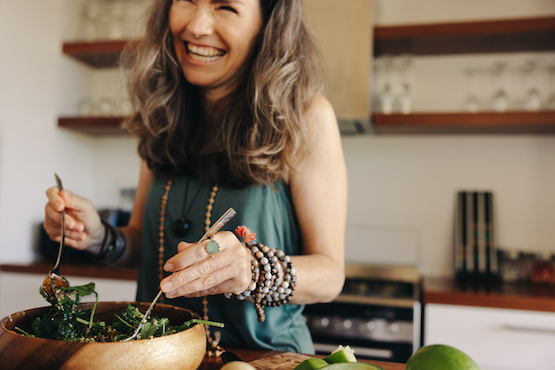
What if the answer was somewhere in the middle? If we could reap the benefits of eating a broad range of fruits, vegetables, grains, beans, nuts and seeds and the benefit of eating quality lean protein in the form of fish, beef, poultry and dairy in a way that makes sense for meeting our nutritional needs.
Ultimately your beliefs, values, culture, and health considerations will allow you to make the best decision for you. Your willingness and ability to be sure you’ve made informed dietary decisions and are meeting your nutritional needs rests in your hands.
Since I as a health coach can’t and won’t offer advice or recommend what’s best for you, I leave you with these questions to ask yourself:
- What results do I hope to gain through nutrition?
- What decisions can I make to be sure I am meeting all my nutritional needs?
- How will eating in this way lead me to feel?
- Will I feel restricted?
- Am I eating in a certain way to feel safer or more in control?
- Is this going to be a sustainable way of eating for me?
Your answers can help you be sure you’re making decisions that align with your values and goals. No one else can do that for you.
As always, if you need support in implementing your decisions to best support your health and wellbeing, look for a board certified health coach in your area. If you want to know more about your specific, individual nutritional needs speak with a nutritionist. If you need more care including working with a diagnosis or treatment for an illness speak with a registered dietician. If you or a loved one are struggling with disordered eating or mental health, please, seek the advice of a mental health professional.
Sources
Harvard Health Publishing Staff. “Vitamin B12 deficiency can be sneaky and harmful.” March 23, 2022.







